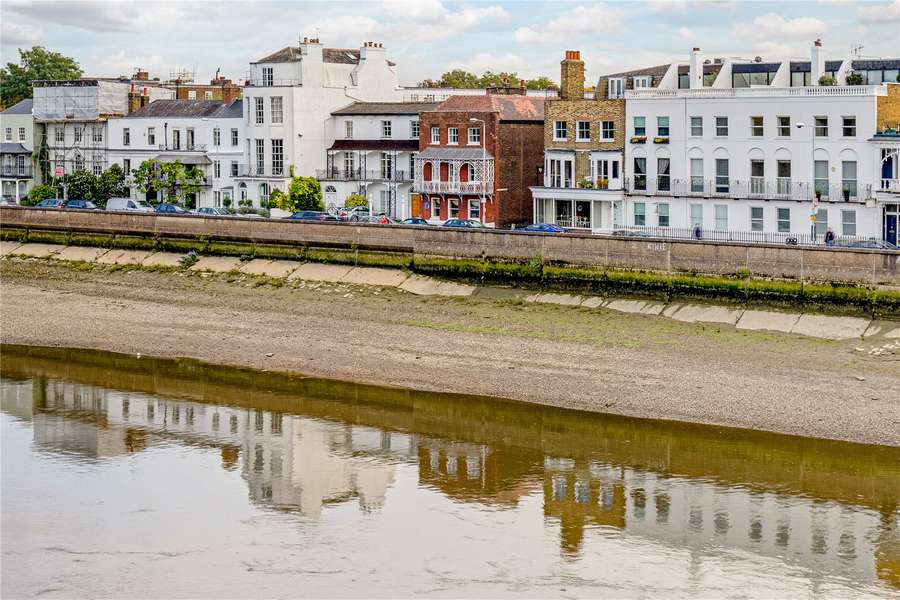Flat Conversion on Richmond Barnes Common: Unlocking Potential in a Premier Location
Nestled in the heart of one of London’s most desirable neighborhoods, Richmond Barnes Common offers an idyllic mix of verdant landscapes, historic architecture, and an ever-growing sense of community. This charming area, renowned for its vast green spaces and proximity to the River Thames, is becoming an increasingly popular destination for homeowners looking to maximize their property’s potential through flat conversions. Whether you’re a homeowner eager to transform your property or an investor searching for a strategic project, the benefits of a flat conversion on Richmond Barnes Common are immense. This article will explore the unique advantages, planning considerations, and practical steps involved in embarking on a flat conversion project in this prestigious part of London.
The Allure of Richmond Barnes Common
Richmond Barnes Common is celebrated for its natural beauty, making it a haven for outdoor enthusiasts, nature lovers, and those seeking tranquility. With easy access to Richmond Park, one of London’s largest and most iconic green spaces, this area offers a serene and sophisticated lifestyle. Properties here are often characterized by grand Victorian and Edwardian architecture, but many homeowners are increasingly drawn to the prospect of enhancing their space, meeting modern demands, and making the most of their property’s layout. A flat conversion presents a perfect solution, allowing homeowners to repurpose existing structures while preserving the character of the neighborhood.
Benefits of a Flat Conversion in Richmond Barnes Common
- Maximized Use of Space
One of the primary reasons to consider a flat conversion in Richmond Barnes Common is the ability to optimize your property’s available space. Many period homes in this area are traditional in style, featuring spacious rooms but sometimes lacking modern functionality. Converting your property into flats allows you to efficiently utilize every square foot. This is particularly advantageous in homes with underused rooms, attic spaces, or large basements that could serve as separate living units, thus enhancing both functionality and comfort. - Increased Property Value
A well-executed flat conversion can substantially increase the value of your property. Richmond Barnes Common is a high-demand location, with its proximity to excellent schools, transportation links, and local amenities, meaning there is a strong market for multi-unit living. The ability to rent out or sell flats individually opens up a wealth of financial opportunities. Whether you’re looking to add a rental unit or create a series of self-contained living spaces, a conversion can provide a significant return on investment, especially if the area continues to develop and attract buyers. - Enhancing Market Appeal
With more people opting for flexible living arrangements, flat conversions offer a modern, versatile living option that can attract a wide demographic. Young professionals, couples, and small families are increasingly seeking well-appointed flats that offer autonomy and convenience, and Richmond Barnes Common, with its proximity to central London, is an ideal place for such tenants. A flat conversion can attract a higher-quality tenant base, improving your property’s rental income potential. Additionally, converting a large family home into smaller flats can appeal to those looking for a more affordable entry point into the neighborhood. - Sustainability and Efficiency
Converting existing buildings rather than embarking on new construction is an environmentally friendly choice. By reusing the structure and materials of an existing property, you reduce the carbon footprint associated with demolition and new build projects. In addition, flat conversions often offer an opportunity to install energy-efficient solutions like insulation, double-glazed windows, and smart home technology. This not only benefits the environment but can also make the converted flats more attractive to eco-conscious buyers and tenants, ensuring your investment stays relevant in an increasingly sustainable housing market.
Planning Your Flat Conversion in Richmond Barnes Common
Although flat conversions can offer great rewards, they require careful planning and attention to detail. Richmond Barnes Common’s status as a conservation area and the presence of listed buildings in the vicinity means there are specific regulations and guidelines that you will need to adhere to when undertaking a conversion project. Let’s take a closer look at some essential steps:
- Understand Local Planning Regulations
The first step in any flat conversion is understanding the planning regulations set out by the local council. Richmond-upon-Thames, the local borough, has strict planning guidelines, particularly in conservation areas. You may be required to submit a full planning application if your proposed flat conversion alters the exterior of the property or its use. For listed buildings, you will need to apply for listed building consent. It’s essential to consult with a local planning expert to ensure your conversion complies with these regulations to avoid unnecessary delays or complications. - Consult With an Architect
An experienced architect is a key figure in the conversion process. They will help you design the layout of the flats to make the most of the existing space while ensuring the project is structurally sound. Their knowledge of Richmond Barnes Common’s architectural style will also ensure that the design respects the neighborhood’s aesthetic and historical significance. Working closely with an architect will allow you to create a balanced design that not only maximizes space but also adds value and charm to your property. - Hire a Skilled Contractor
Selecting the right contractor for the conversion is critical to ensuring that the project runs smoothly, stays on schedule, and meets your expectations. Look for contractors who have experience with flat conversions in similar properties and are familiar with the challenges specific to the Richmond Barnes Common area. They should be able to navigate local building regulations and work with architects and other professionals to ensure the project is completed to a high standard. - Budget and Timeline
A flat conversion is a significant financial investment, so it’s important to establish a realistic budget and timeline from the outset. Costs can vary depending on the size of the property, the complexity of the conversion, and the materials used. It’s advisable to get multiple quotes from contractors and include a contingency in your budget to cover unforeseen expenses. Setting a clear timeline with milestones for the completion of each phase will help manage expectations and avoid costly delays.
Final Thoughts: The Future of Flat Conversions in Richmond Barnes Common
As London continues to grow and evolve, areas like Richmond Barnes Common will remain in high demand. Whether you’re a homeowner looking to enhance your property or an investor seeking a profitable project, flat conversions present a fantastic opportunity to unlock the full potential of your property. By maximizing space, increasing property value, and meeting the growing demand for flexible living solutions, you can enjoy the benefits of a well-executed conversion.
The combination of historic charm and modern living solutions makes Richmond Barnes Common an ideal location for flat conversions. With thoughtful planning, skilled professionals, and a focus on preserving the area’s unique character, a flat conversion in Richmond Barnes Common can provide lasting rewards for years to come.



No responses yet